10 Signs You Need to Get Your Clothing Tailored

In our fast fashion world, many people are quick to discard clothing showing even minor signs of poor fit or regular wear and tear. The environmental impact of this habit is staggering: According to Earth.org, Americans throw out an estimated 11.3 million tons of textile waste each year, equivalent to 85 percent of all textiles produced annually. In other words, we’re getting rid of our clothes nearly as fast as we’re buying them—and our planet is suffering for it.
There is, of course, another way forward. Investing a little more money into fewer fashion pieces and caring for them over time is one way to build a more meaningful wardrobe. Getting those clothes tailored to fit well and remain free of damage can help keep them in top condition for years instead of months.
Max Israel, founder of the menswear brand Y.Chroma, suggests that tailoring your clothes can also make your look more discerning and distinguished. “Tailored clothes demonstrate an attention to detail that can elevate a person’s overall appearance, regardless of their age,” he says. “Whether it’s the perfect sleeve length or a well-fitted jacket, these subtle adjustments can make a significant difference in how a person is perceived.”
Wondering which signs may signal that you need to get your clothing tailored? These are the top 10 ways to know that your garments could use a professional touch.
RELATED: 6 Fabrics Stylists Say They’ll Never Wear.
1
You notice a poor fit.
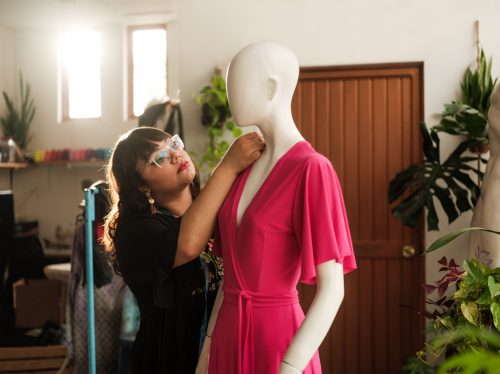
The first and most obvious sign that you need to get your clothing tailored is if you notice an overall poor fit but think the garment itself is worth saving.
“If your clothes feel too tight or too loose in certain areas, especially around the shoulders, chest, waist, or hips, it’s a clear sign that they need adjustment,” says Israel. “Ill-fitting clothes can make you look sloppy and detract from your overall appearance.”
2
Your clothes have long or uneven hemlines.
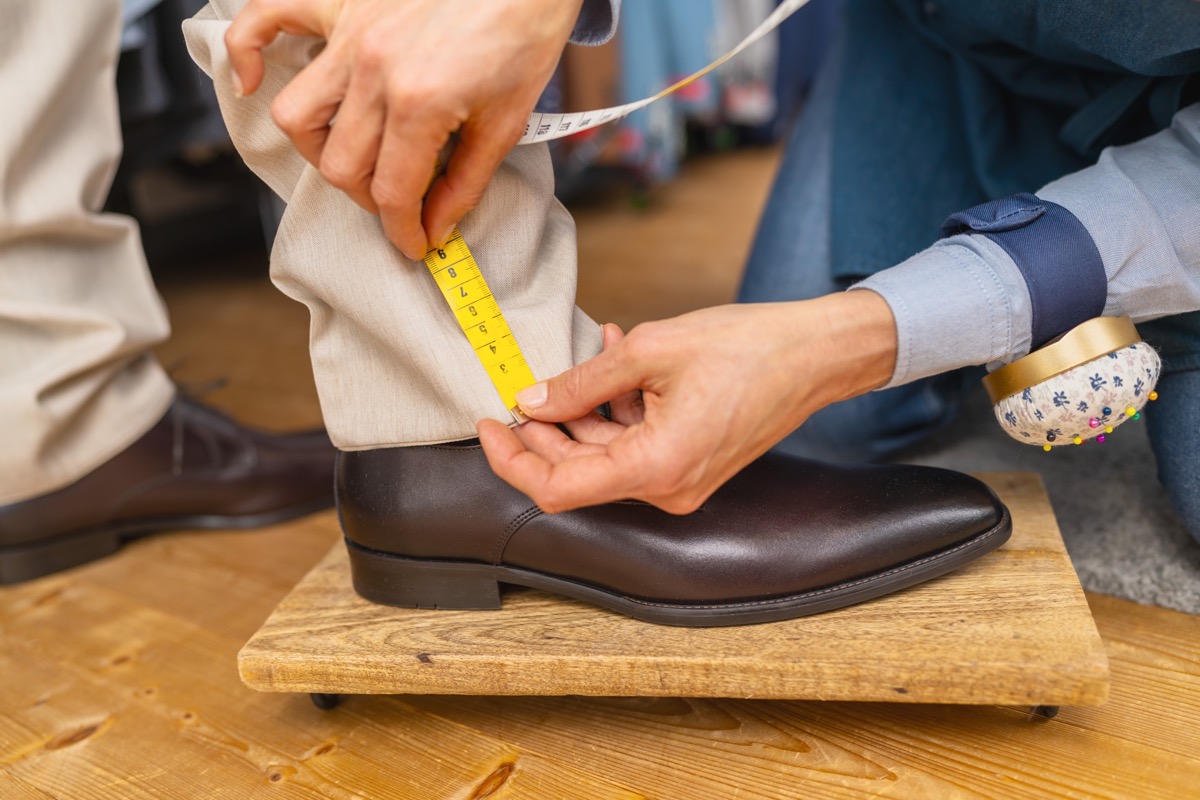
If, when you stand up straight, you notice that your hemlines are off-kilter or excessively long, this is another sign that it’s time to head to the tailor.
“Hemlines that are uneven or dragging on the ground can be a telltale sign that your clothes need alteration. This is especially common with pants, where the length may not be suitable for your height,” says Israel.
Liz Williams, designer for the women’s outerwear line The Checkroom, agrees, noting that pants that are too long not only affect the look of the garment but can also be a tripping hazard.
“If you find that your hems are collecting dirt and stains quickly, this may be a sign that you need to go to the tailor,” Williams says.
3
The shoulder seams are slipping.
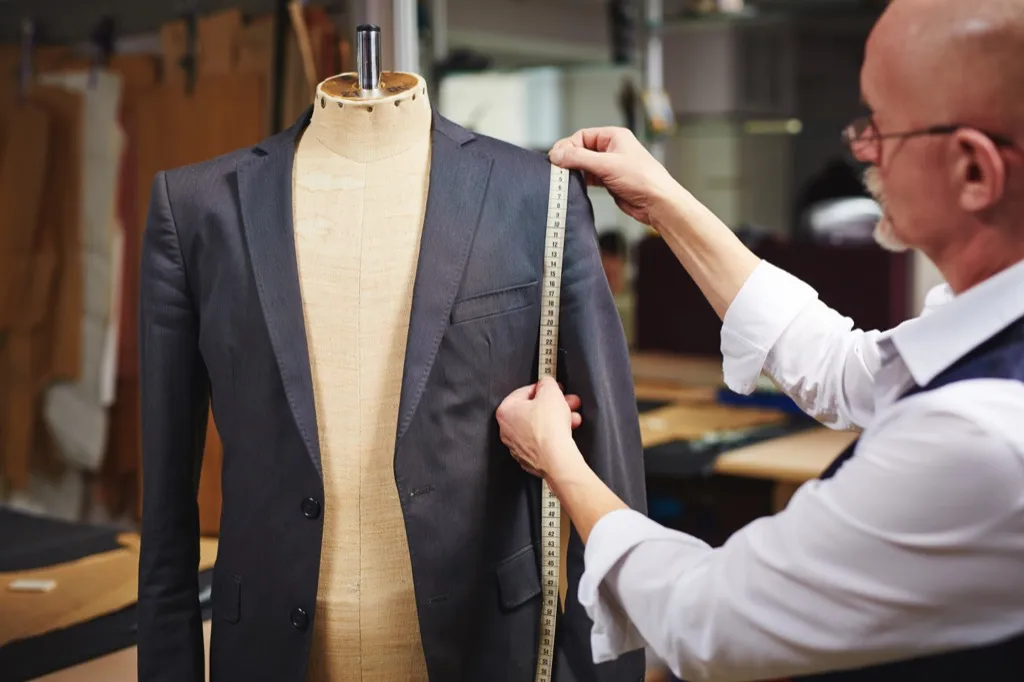
Scott Liebenberg, founder and CEO at Tapered Menswear, says another sign that it’s time to get your clothing tailored is if your shoulder seams are slipping downward.
“The seams of the shirt should ideally align closely with where your shoulder ends. If these seams are slipping off the shoulder, the shirt can appear too large and may create a sloppy silhouette,” he tells Best Life. “Tailoring this area can significantly improve the shirt’s fit and overall look.”
RELATED: 10 Timeless Clothing Items That Never Go Out of Style.
4
Your buttons are gaping.
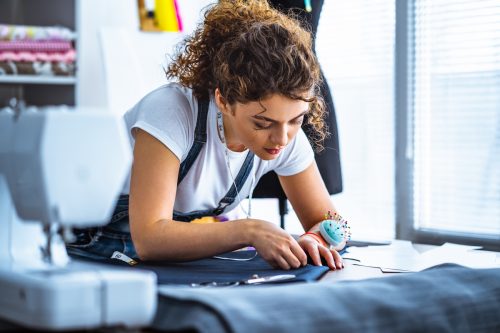
Next, you’ll want to turn your attention to your buttons, especially if the item in question is a collared dress shirt or jacket.
“If buttons on shirts or jackets are pulling or gaping when you move, it’s a sign that the garment is too tight across the chest or waist,” explains Israel. “Tailoring can help adjust the fit to prevent this issue. Nothing is worse than looking like you’re about to pop a button!”
5
Your body’s asymmetries are affecting fit.

In some cases, needing to get your clothing tailored has little to do with your clothes themselves. Having asymmetrical bodily features may mean it’s a good idea to tailor any structured garments you own.
“Contrary to popular belief, our bodies are not entirely symmetrical. Most women have a shoulder that hangs lower as a result of carrying a baby or handbag, and most men have a shoulder that is bigger or stronger than the other,” says Williams. “Arm lengths can be different, as can shoe sizes! For this reason, some people may find that their clothing fits differently on one side of their body versus the other side and need to visit a tailor as a result.”
If you find that one side of your clothing is puddling or pulling very tight, you may have an asymmetric figure and need to visit your local tailor.
6
Your sleeve length is all wrong.

Israel says that sleeves that are too long or too short can throw off the balance of an outfit. Ideally, they should end at the base of your wrist bone when your arms are relaxed at your sides, he notes.
As for jacket sleeves, Williams says they should “hit the wearer in between the knuckles and wrist.”
“If they’re significantly longer or shorter, tailoring may be necessary,” Israel explains. “A trick can be to bunch the sleeves up around the elbow, but that won’t work year-round.”
RELATED: 6 Ways to Make Your Jeans Look Designer, Stylists Say.
7
The fabric of your clothing is bunching.
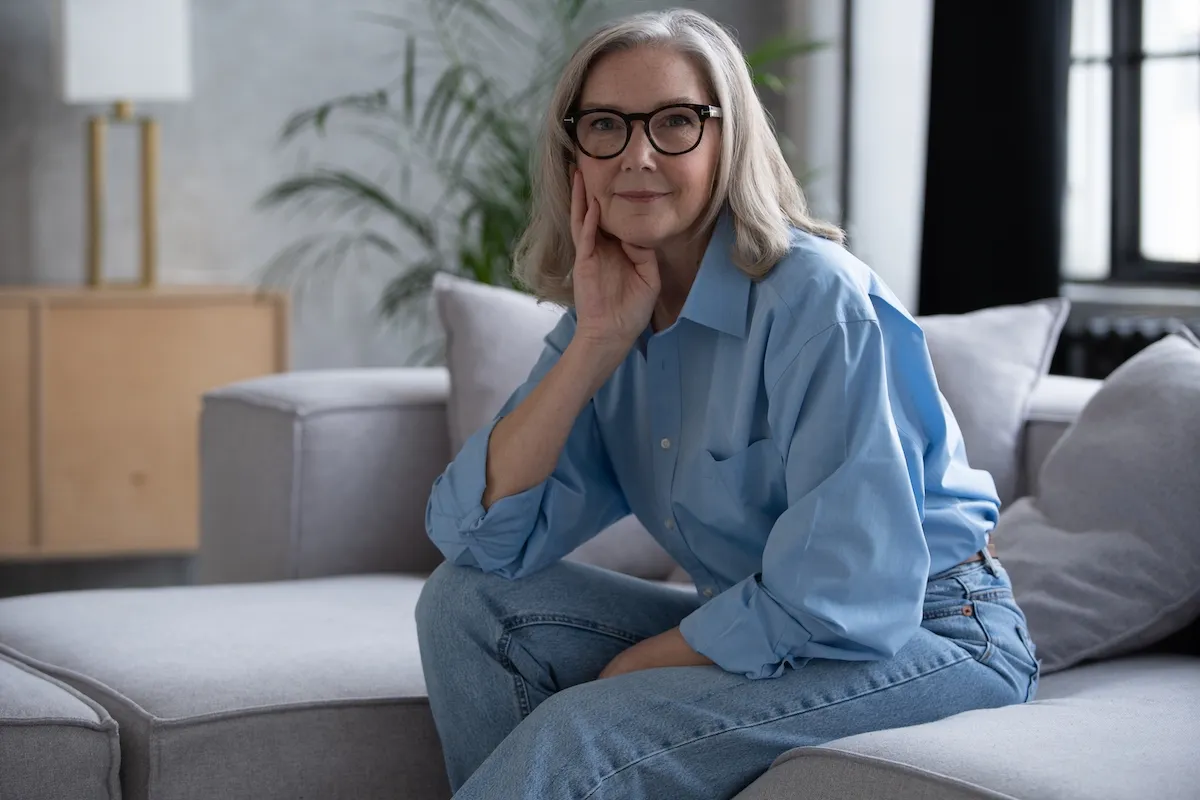
Bunching can also be a dead giveaway that you need to get your clothes tailored. There are a few key locations where this will typically happen.
“If you notice excess fabric bunching up around your arms, back, or torso when you wear certain garments, it’s a sign that they’re too loose and need to be tailored to your body shape for a sleeker look,” Israel says.
Liebenberg agrees that excessive bunching or fabric pooling in these areas typically indicates that a garment is too large and needs tailoring. Using darts, “a tailor can take in the shirt at the back seams to create a smoother, more defined drape across the back,” he says.
“Large armholes can similarly cause excess fabric to bunch under the arms and at the chest when the arms are moved. Tailoring the armholes to a smaller size can enhance comfort, improve the range of motion, and give a more tailored appearance,” Liebenberg adds.
8
You’ve lost or gained weight.
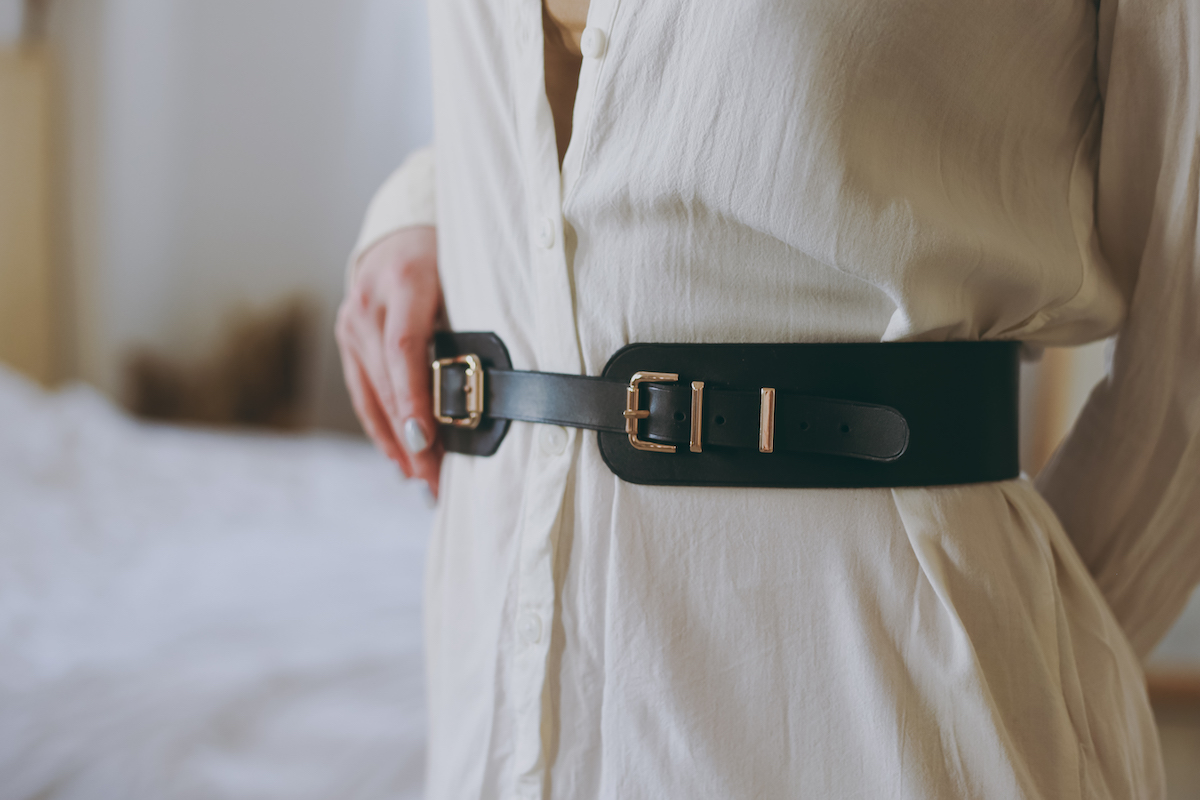
Losing or gaining weight can affect the fit of your clothing. Rather than fretting over these common body changes, Williams recommends seeing a tailor instead.
“If you have invested a lot of money in your wardrobe and lost or gained weight, a tailor is a lovely alternative to buying all new clothes. Your local tailor can modify your existing wardrobe to accommodate your figure changes without breaking the bank,” she says.
One way that you might notice a more snug fit is if you see pull marks or drag lines across your clothing. “Visit your local tailor to see if something can be done for the fit of the garment. In most cases it is much easier to take in a garment than it is to let it out, but many tailors are quite savvy with fabric extenders,” Williams adds.
RELATED: 5 Clothing Items You Should Never Buy Online, According to Retail Experts.
9
Your coat lining is starting to show signs of wear.

Sometimes, you need to get your clothing tailored to restore a garment to its former glory. Williams says that one example is when your coat lining begins to show signs of wear and tear.
“Coat lining serves a few purposes. They’re meant to not only make a garment easier to slip on and off, but they also serve as a protection to the outer (usually more expensive) fabric,” she explains. “If you find that your coat lining is showing signs of wear, you can extend the life of your coat by having your local tailor replace the lining with a new one.”
10
Your dream item isn’t available in your size—or at all.

Another reason you might see a tailor is to have an item you’ve been pining for made from scratch. Sometimes, you can also achieve this by buying an item that’s closest to your size, with the intention of making alterations.
“If your dream item is not available in your size, but it is available one size smaller and one size bigger, be sure to purchase the larger size and have it taken in. It is much easier to have an item of clothing taken in rather than let out,” Williams notes. “When trying on clothes it’s always important to make sure that you have room to move your body. Opt to buy a larger size and have an item taken in, rather than purchasing something that feels slightly too tight in any one spot.”